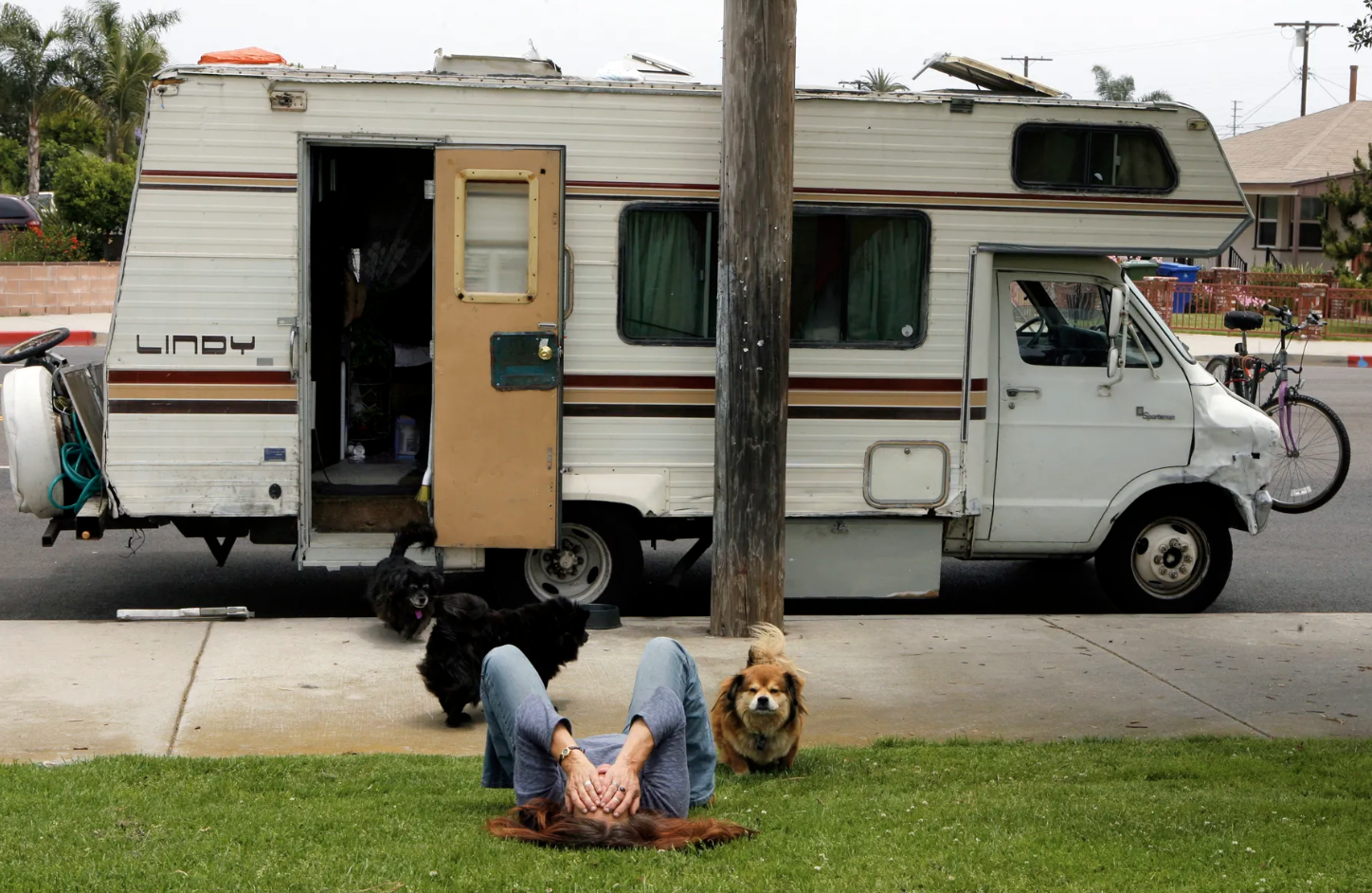On Wednesday, the Los Angeles City Council voted to approve Council File 23-0529, a motion authored by Councilmember Traci Park that bans the rental of RVs to unhoused people. Despite strong opposition from advocacy groups, vehicle residents and legal experts, the Council chose to move forward with a policy that does nothing to create housing but makes it easier to take away what little shelter people have.
Even more disheartening is the fact that several so-called progressive councilmembers voted for it. CD4 Councilmember Nithya Raman, who was elected on a platform of housing justice and compassionate governance, not only supported the motion but formally seconded it, helping it advance through committee and onto the Council floor. This vote should be troubling for anyone who believed LA’s progressive leadership would reject policies that criminalize poverty.
Park framed the motion as a crackdown on so-called “vanlords,” people who rent out RVs or vans as housing of last resort. But the measure does nothing to regulate safety, improve habitability or offer repairs or new services. It simply makes it illegal to rent an RV to someone experiencing homelessness, with no alternative in place. For the 12,000 Angelenos living in vehicles, this law means increased risk of displacement, enforcement, and criminalization and in many cases, it means being pushed from an RV onto the sidewalk.
This motion is just the latest chapter in a long history of Los Angeles trying to push poor people out of sight through vehicle dwelling bans. Since 1983, when the city first adopted LAMC 85.02 to outlaw using a car as “living quarters,” vehicle dwellers have been targeted with citations, arrests, and tows. In Venice, LAPD once ran a 21-officer “Homelessness Task Force” that ticketed and jailed people simply for keeping bedding or cookware in their cars. That crackdown ended in 2014 when the Ninth Circuit Court of Appeals struck down 85.02 in Desertrain v. Los Angeles, ruling it unconstitutionally vague and discriminatorily enforced. The court held that the city was criminalizing innocent behavior only when poor people did it.
Rather than invest in safe parking or housing, City Hall pivoted to new tools like the Oversized Vehicle Ordinance, which bans overnight RV parking block by block (you’ve seen the signs). By 2023, the City Controller found Los Angeles had created more than 1,300 of these “OVO zones,” spending nearly $3.7 million on signs and racking up thousands of citations and tows, while the number of people living in vehicles kept climbing. None of the city’s 15 Safe Parking sites accept RVs, meaning enforcement simply displaces people from one street to another, never solving the problem. Each time a vehicle is towed, someone loses not just transportation but their last form of shelter.
Seen against this backdrop, Park’s “vanlord” continues a long tradition of criminalizing poverty in Los Angeles. Like 85.02, like the OVO crackdowns, and like the pandemic-era push to restart RV towing, this new law claims to protect vulnerable people but in practice strips them of shelter with nowhere else to go. It follows the same pattern, punishing people for being too poor to afford rent, while failing to provide safe alternatives. The city has tried this strategy for decades, and every time it has produced more displacement, more harm, and more lawsuits.
This motion also mirrors Assembly Bill 630, a state-level bill sponsored by Mayor Karen Bass that would allow for the destruction of more RVs by raising the value threshold for scrapping vehicles from 500 to 4,000 dollars. Both policies claim to protect renters, but neither listens to what vehicle dwellers themselves are saying.
A recent report by the Venice Justice Committee, Keep Moving, gathered direct testimony from nearly 100 vehicle residents across West LA. They found that most people in vehicles are not there by choice, but because of eviction, job loss, illness, or disability. They move constantly to avoid tickets, towing, and police harassment. RVs, while often in disrepair, offer privacy, autonomy, and basic shelter that traditional shelters frequently fail to provide.

